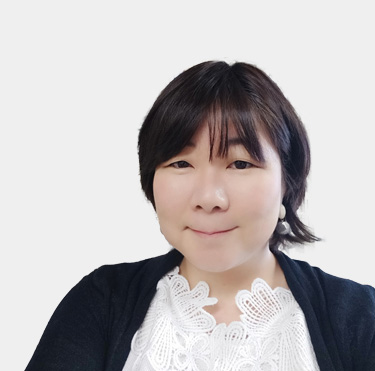07

Interview with Professor Sayaka Ogawa of
Graduate School of Core Ethics and Frontier Sciences
This interview was conducted on July 29, 2020

Contents
Conducting research during the COVID-19 crisis
How are you conducting your classes during the COVID-19 crisis?
Because I belong to a standalone graduate school, the bulk of my work is supervising graduate students’ thesis writing and research, rather than teaching classes. I am reminded daily of how difficult it is to provide supervision online.
In person, you can effectively check that your students understand what you’ve told them, but supervising remotely requires an exchange of several long emails. I meet with my students on Zoom, but it is difficult to show them literature related to their research and check their citations and critiques.
This is why, as much as possible, I provide my students with careful supervision even though it takes more time. I am also having my students build up their experience by writing and submitting book reviews since they cannot conduct field work now.
Publishing book reviews in academic journals not only allows students to develop their own skills, it helps them to get their names known in academic circles, which can lead to opportunities for networking. Instead of just reading articles, having a goal to achieve gives the students motivation.
Field work is an important part of cultural anthropology, but it has become difficult to conduct due to COVID-19. How are you teaching your students the importance of understanding the field?
The real experiences you gain from field work are vital for research in cultural anthropology, so it is unfortunate that we cannot do field work right now.
You can learn to explore a specific research theme by asking "Why is it like this?” You can make various discoveries by thinking deeply while going back and forth between your own culture, which had been self-evident until then, and your experience in the field.
Although it is difficult to get out into the field now, I definitely want my students to learn about the joy of conducting field work-based research.
My book The Boss of the Chungking Mansions Knows: Anthropology of an Underground Economy*1 is a collection of essays about the livelihood and business practices of Tanzanians living in Hong Kong based on the field work I conducted there.
The book outlines the process of how I identified questions and approaches after arriving in Hong Kong, compared these to the theories, and constructed my argument. If this sounds interesting to you, I hope you will pick it up.
Your book won the 51st Oya Soichi Nonfiction Award and the 8th Kawai Hayao Prize for Social Sciences and Humanities*2
Yes, I am very honored. How the Tanzanians documented in my book run their businesses and build social relationships may seem odd to students, but by living with the local people and sharing the same time and place with them, you get a sense of contemporariness and see many commonalities in their practical logic.
I think the same applies to university. You meet and interact with people that you could have never met before, and you encounter both heterogeneity and otherness. Even if you cannot come to an understanding with someone, that does not mean that you cannot have dealings with them.
By interacting with others, I think you can relativize your own notions of common sense and deepen your thoughts about different ways of life and ways of thinking, and in turn, enrich your life.
※2 51st Oya Soichi Nonfiction Award、8th Kawai Hayao Prize for Social Sciences and Humanities

How will the COVID-19 pandemic change social systems?
Has the impact of the COVID-19 pandemic spread to our social systems?
As someone who studies Africa, what has surprised me is how resilient workers in the informal economy, such as sole proprietors and day laborers, have been.
People tend to think that the informal economy would be the first to suffer given its unstable nature, but Africans, who live in much more uncertain conditions than we do in Japan, have developed economic and social systems that are designed to allow them to survive amid crises and predicaments.
By searching for multiple jobs at the same time, even if one job becomes insolvent, there is a mechanism in place that keeps that from affecting a person’s other jobs. There are also flexible ties between different industries.
Merchants who can no longer trade with the outside world due to COVID-19 are tapping into their existing networks to change jobs or create new jobs by collaborating fully with different industries. In their day-to-day social interactions, these people must think about how they can overcome the crisis.
So, the reason the informal economy is strong in the face of the coronavirus is the connections between people.
Exactly. I also think the close relationship with ICT has played an important role. Have you heard of the gig economy? This refers to using the internet to pick up one-off jobs. A typical example of this is ride-sharing services like Uber.
This trend has gained attention for allowing a flexible way of working that is not tied to any one company, but many concerns have been raised in industrialized nations because these jobs don’t provide the security or stable income that a job with a company does.
In Africa, however, regular employment is scarce, and the informal economy, in which most self-employed people work, never provided security to begin with. This is why the gig economy has helped Africans expand their ways of working.
In fact, the informal economy is where the idea for the gig economy came from. For example, hairdressers and nail artists use ICT to offer house calls, and instead of Uber Eats, an “Uber for cleaning services” has sprung up.
With people unable to meet face-to-face due to COVID-19, it is interesting to see how people are making use of the internet.
How does this apply to our regular interpersonal relationships?
With more services going online due to COVID-19, I think many people are feeling depressed while at the same time realizing how cumbersome it is to maintain interpersonal relationships.
Thinking of why these relationships feel cumbersome is something I think we need to do to create a new kind of society. In any society at any point in history, interpersonal relationships have always accounted for many of our worries, but this time I think the situation is qualitatively different.
If you think about why you don’t feel like joining an online drinking session with your club members, I think you can come up with several answers. It’s hard to “read the room”, you feel like you have to act a certain way, or you fear that making a minor gaffe could irreparably damage a relationship.
If something doesn't feel right, you experiment with making changes and trying new things. To be in crisis means norms and commonly accepted beliefs have been disturbed, but it also provides an opportunity to affect change for some reason or another.
What can we do right now?
Given the current situation, what do you think we can do right now?
I don’t like telling people they “should” or “have to” do something, so my message for the students is to do what you like. I would like universities to be places where you can make many mistakes.
People in Tanzania often say that the experience of being deceived to a lesser degree helps them understand what is “bad" and provides them with the wisdom they need to get through a situation. When they see someone in a desperate situation, they laugh at them sympathetically.
In Japan, when we see someone in a difficult situation who is lashing out or making an unsightly excuse for themselves, it's easy to think that they are actually a scary person or a weak person because we are afraid of being seen the same way.
In Tanzania, however, where the people encounter much more risk than we do in Japan, people who failing after going through a predicament do not consider this to be the true nature of things; rather, they believe they have transformed themselves for the better because they have gained the wisdom they need to survive similar situations in the future.
This is why when someone is laughed at, they laugh back because they know they look silly and recognize the situation to be all too human. The Japanese tend to be overly fearful of difficult situations, but if society could become more tolerant of failure, I think the world could become a kinder, gentler place.

So, you’re saying we have to remember to find joy even in difficult situations.
I think there are many new students who feel they’ve been cursed with bad luck. They just finished studying hard for their entrance examinations to get into university and now they can't go to campus and make friends because of the coronavirus.
I understand this feeling all too well because I graduated university in the early 2000s and experienced the so-called “employment ice age.” However, they often say that troubled times create more original people, so don't consider yourself unfortunate. Together we can think about how to take advantage of this predicament.
Our students have some really interesting ideas. Not long after online classes started, my students created a system for helping each other with their assignments and lending books to each other. Even if you start small, the accumulation of ideas can lead to major change.
There are more gloomy days to come, so remember to be kind to yourself. You might want to punish yourself or blame others, but if you let these feelings take over, it will be difficult to live. When we find ourselves in a difficult situation that cannot be tackled with conventional methods, the first step to finding a workable solution is to be kind to yourself and to others.
Message
Profile
Professor Sayaka Ogawa
Affiliation: Graduate School of Core Ethics and Frontier Sciences
Areas of expertise: Area studies, cultural anthropology
 MORE INFO
MORE INFO
Other articles






